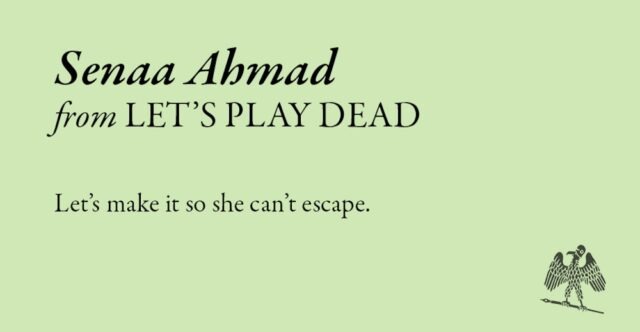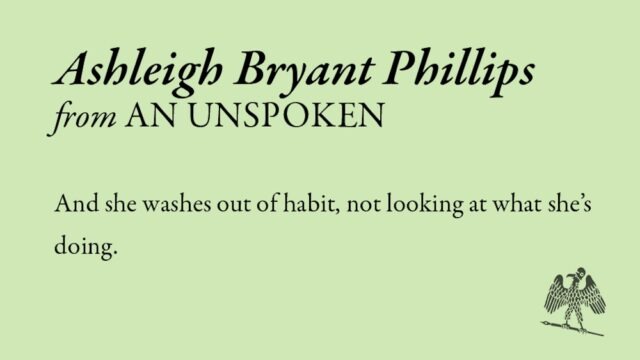From The Paris Review:
To showcase the variety of the short stories published in the Spring issue, we asked the six writers to select a single sentence that marked the moment they first knew what story they were writing.

This story was stuck in my head for months, so by the time I started writing it, I felt like I knew more about it than anyone needs to know about anything. Drafting is often a sweaty, anxious process for me, but there are always surprises that make it worthwhile. I wanted the story to have a slippery quality to it, but nailing down the narrative voice was a series of small discoveries. Writing the opening, and writing this sentence in particular, is maybe the moment when the story and its somewhat capricious voice slid into proper focus for me. —Senaa Ahmad, “Let’s Play Dead”
. . . .

I initially thought I was going to explore this incident that happened in a neighboring town back home involving an elderly woman and her young-man neighbor. And I knew I wanted to start with the woman, Clara, at her kitchen sink, washing dishes and looking out her window. But I had no idea the story would unfurl like it did, and I ended up discovering the story wasn’t even about the incident after all. I love a good surprise. —Ashleigh Bryant Phillips, “An Unspoken”
Link to the rest at The Paris Review
Well, I always like to fall back on the shortest novel/story ever written/told. By Hemingway:
“For sale, baby shoes, never worn.”
Supposedly, he did it on a wager around a table with other writers at the Algonquin Hotel (on 44th St., NYC). I used to stay next door over many years at the Iroquois, and I liked to saunter next door and sit at a window table and imagine the scene. Can you picture it?
Fredric Brown came close:
“The last man on Earth sat alone in a room. There was a knock on the door … ”
He was great at both SF and mystery and it shows.
Thinking along those lines, I might offer: “The last human chose poison.”
Hard to top Hemingway’s, though.
Are we allowed to play, too? In the case of my science fiction novel The Shadow of the Ship, as soon as I had the title, I had the basic story. It’s a quotation from a long-favorite poem, Coleridge’s “The Rime of the Ancient Mariner”. This image combined with an earlier idea of a sailing ship hull-down over the horizon, where the sails are visible but not the ship itself. I was in the U.S. Army in Germany, and thinking of a distant friend I’d known since boyhood, visible to my mind’s eye but of course not in person. The novel was dedicated to him, and he’s still a friend although far away again.